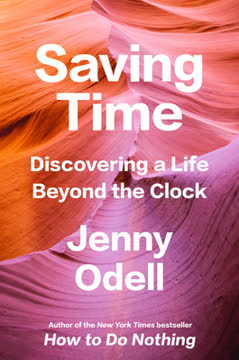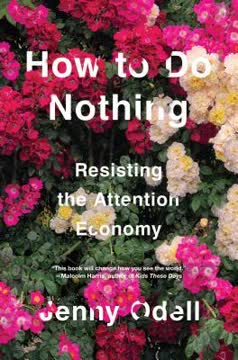Key Takeaways
1. Time is Not Just Money: Unpacking its Capitalist Roots
Without exploring the social and material roots of the idea that “time is money,” we risk entrenching a language about time that is itself part of the problem.
Historical origins. The pervasive notion that "time is money" is not a natural law but a historically specific construct, deeply intertwined with the rise of industrial capitalism and colonialism. This perspective emerged from the need to standardize and quantify labor, transforming human existence into measurable units of productivity. Early mechanical clocks, initially developed in monasteries for canonical hours, were later adopted by the bourgeoisie to regulate trade and workers' time, imposing uniformity across diverse activities and geographies.
Fungible time. This capitalist view introduced "fungible time," where hours and minutes became interchangeable, decontextualized, and infinitely divisible, much like currency. This allowed employers to view individual people as "personified labour-time," a commodity to be bought, sold, and optimized. The systematic management of others' time, often associated with Taylorism, has roots in colonial plantations where bookkeeping practices aimed to maximize slave productivity, treating labor hours as interchangeable as pounds of sugar.
Power dynamics. The "time is money" equation inherently reflects power imbalances: who buys whose time, whose time is valued, and whose schedule must conform. This is evident in the meticulous surveillance of low-wage workers, from Amazon warehouse scanners tracking seconds to call center managers monitoring bathroom breaks. This system, designed to extract maximum value, often obscures the human cost and the historical context of its imposition, making it seem like an unquestionable reality rather than a tool of control.
2. The Illusion of Equal Hours: Time as a Tool of Control
For an individual, time is not the measurement of something real but, rather, a “structuring relation of power.”
Myth of equality. The popular adage that "everyone has the same number of hours in the day" is a "cruel joke," masking profound inequalities in temporal autonomy. While time management books often promote this myth, the reality is that some individuals control others' time, and the value of one's time is influenced by factors like gender, race, and economic status, not just individual effort. This is particularly true for those who must "rent their time to employers simply in order to survive."
Zeitgebers and entrainment. Our experience of time is shaped by "zeitgebers"—external factors that organize and pattern our days. These can range from children's school schedules to chronic illness cycles or the demands of a gig economy app. When different zeitgebers conflict, power dynamics determine whose temporality takes precedence, forcing some to "entrain" their activities to others. This often plays out on an uneven field, where the privileged can maintain control over their time, while others must constantly adjust.
Personal Taylorism. The Protestant work ethic, emphasizing hard work and efficiency as moral virtues, has evolved into a form of "personal Taylorism." Individuals are encouraged to become their own "time-study men," meticulously logging and optimizing their minutes to increase personal productivity and "self-mastery." This internalizes the pressure, making individuals responsible for their own "efficiency" and often leading to self-blame for burnout, rather than questioning the systemic structures that demand endless optimization.
3. Beyond Productivity: Reclaiming Personal Time and Challenging Self-Optimization
If you are truly an achievement-subject who is only wearing yourself down, then I suggest an adjustment of discretion: experimenting with what looks like mediocrity in some parts of your life.
The burnout society. Modern society, driven by a "logic of increase," fosters "achievement-subjects" who are perpetually driven to maximize performance, often against themselves. This relentless pursuit of "better" in every aspect of life—work, health, knowledge, relationships—leads to burnout, a state of "auto-exploitation" where the finish line constantly recedes. This internal compulsion, amplified by social media's endless comparisons, makes it difficult to ever feel truly accomplished or at peace.
Questioning the hustle. The "hustle culture" often equates busyness with worth, pushing individuals to constantly demonstrate usefulness through "frenetic doing." However, this relentless drive can obscure deeper desires for autonomy, meaning, and purpose beyond work and profit. For those with privilege, choosing to "lie flat" or embrace "mediocrity" in certain areas can be a radical act of refusal, challenging the dominant narrative that equates self-worth with endless expansion and productivity.
Collective solutions. True "time management" extends beyond individual optimization to collective action and structural change. Instead of outsourcing tasks or competing in a zero-sum game, solutions lie in mutual support networks and policies that redistribute power and security. This includes:
- Subsidized childcare and paid leave
- Fair workweek laws
- Higher minimum wages and universal basic income
These measures aim to create a society where time is not a scarce commodity to be hoarded, but a shared resource that enables a dignified life for all.
4. Leisure as Resistance: More Than Just a Break from Work
If the concept of leisure has any utility, for me it has to be this: an interruption, an apprehension, a glimpse both of the truth and of something completely different from what we normally see.
Beyond consumerism. Leisure, in its truest sense, is not a product to be consumed or a reward for work, but a "state of mind" or "emotional posture" involving awe and gratitude. This contrasts sharply with the "experience economy," where slowness and self-care are commodified and sold as rarefied lifestyles, often for privileged individuals. Such consumerist leisure, exemplified by influencer culture, paradoxically reinforces the very "fast capitalism" it purports to escape, turning genuine experiences into marketable backdrops.
Political dimensions. Public leisure, while seemingly neutral, has a complex history intertwined with social hierarchies and segregation. Historically, access to parks and recreational spaces was often denied to non-white and marginalized communities, with "safety and purity" equating to white and abled. This history reveals that leisure has always been political for those whose access to an enjoyable, dignified life is an issue of justice, challenging the notion of a "sanctuary" that tacitly excludes others.
Subversive rest. True leisure can be a form of political resistance, an "interruption" that allows for critical reflection and the imagining of alternative worlds. Tricia Hersey's Nap Ministry, for instance, advocates for rest as a "path to liberation" and a "racial justice issue," directly challenging the grind culture rooted in capitalism and white supremacy. This "political slowness" is not about individual indulgence, but about communal care and creating spaces where different languages of time and being can be kept alive, fostering collective imagination and power.
5. Unfreezing Time: Embracing the World's Chronodiversity
Wherever anything lives, there is, open somewhere, a register in which time is being inscribed.
Beyond abstract time. Our default understanding of time as linear, abstract, and measurable is a cultural construct, not a universal truth. This "Newtonian outlook" often leads to "time blindness," where non-Western and indigenous temporalities are dismissed as "timeless" or "missing." Henri Bergson's concept of "duration" offers an alternative, viewing time as a continuous, interpenetrating process of creation and development, akin to a lava flow or biological evolution, where moments are inseparable and unpredictable.
Timefulness and place. Geologist Marcia Bjornerud's "timefulness" emphasizes the inseparability of time and environmental space, revealing how the past is "still present" in the material world. Indigenous worldviews often embody this, with seasons defined by ecological changes rather than fixed calendar dates, and land itself seen as a dynamic, living entity. To "unfreeze something in time" means observing a specific place—a branch, a rock, a patch of land—and recognizing it as an ongoing "register" of overlapping processes, from geological shifts to the minute activities of a brown creeper.
Nonhuman agency. This shift in perspective requires acknowledging the "subjecthood" and agency of the nonhuman world, moving beyond the anthropocentric view that sees nature as inert "stuff" to be controlled or exploited. Rocks, plants, and animals are not mere backdrops but active participants, making decisions and influencing their surroundings. This "dispersed agency" challenges the Western hierarchy of divine, human, and nature, fostering a deep respect for the intelligence and consciousness of all living (and seemingly non-living) entities.
6. Climate Crisis as a Moral Failure: Recognizing Nonhuman Agency and Historical Responsibility
There was no a priori reason why American forestry should have rigorously excluded all forms of broadcast burning.
Declinism and paralysis. The pervasive sense of climate dread and "apocalypse porn" often stems from "declinism"—the belief in an inevitable, irreversible doom. This deterministic view, akin to a video playhead moving grimly forward, obscures the agency of both human and nonhuman actors, leading to nihilism and paralysis. It projects a future without struggle or contingency, making it seem as though history is a purely mechanical process rather than a series of choices and power dynamics.
The "hot dog" problem. The Anthropocene, while highlighting human impact, often lumps humanity together, obscuring the specific actors responsible for the culture of extraction. This framing, like the "hot dog" sketch where no one takes responsibility for a crashed car, conveniently deflects blame from energy companies and colonial powers. These entities actively promote a worldview where extraction and consumer demand are "inevitable," portraying climate change as solely the fault of aggregate consumers, rather than a consequence of their own profit-driven decisions.
Beyond partial silence. Addressing the climate crisis requires moving beyond "partial climate silence," which frames the issue as purely environmental, scientific, or economic, ignoring its moral and social justice dimensions. This means:
- Recognizing the historical responsibility of those who profited from extractivism.
- Acknowledging the "apocalypse past" experienced by Black and indigenous peoples due to colonialism.
- Challenging the "Enlightenment fantasy of elimination and control" that denies nonhuman subjecthood.
This shift in perspective allows for a more holistic understanding of the crisis, revealing that "this was never it"—that other worlds have ended, and new ones can still be born through collective action and a re-evaluation of our relationship with the planet.
7. Speaking New Times: Cultivating Temporal Commons and Collective Resistance
To refuse is to say no. But, no, it is not just that. To refuse can be generative and strategic, a deliberate move toward one thing, belief, practice, or community and away from another.
Temporal commons. A "temporal commons" refers to shared social agreements that construct and define collective experiences of time, such as the Spanish siesta or "Filipino time." These commons require "stewards" to protect them from the encroaching "normal" of capitalist time. When informal agreements are insufficient, codifying new "criteria for success" becomes necessary to safeguard these alternative temporalities, challenging the dominant expectation of constant availability and productivity.
Language as resistance. Systems of time are deeply embedded in language, and challenging dominant temporalities often involves speaking new or "forbidden" languages. This can manifest as:
- "Familects" or dialects within shared spaces (e.g., "hog" for a small coffee).
- "Black holes" or "insides" created by enslaved people to protect their own temporal practices.
- Indigenous communities using "patriotism" to hold traditional dances under colonial surveillance.
These acts of linguistic and temporal non-compliance create spaces of mutual intelligibility and resistance, defying external control and asserting alternative cosmologies.
Collective study and refusal. True change emerges from "study"—a collective, intellectual practice involving "talking and walking around with other people, working, dancing, suffering." This "incessant and irreversible intellectuality" blurs the lines between personal agency and structural change, fostering solidarity among those who recognize that the dominant system is "killing you, too." This collective "refusal" is not merely saying no, but a generative act of "reprogramming" the operating system, creating new territories of ideas, language, and actions that challenge the hierarchical forms of the market and institution.
8. Life Beyond Longevity: Redefining Aliveness Through Connection and Mutual Regard
For me, death is when I can no longer engage with the world around me; when I can no longer take anything in and, therefore, can no longer connect.
Critique of wellness. The relentless pursuit of numerical longevity and "wellness" in a capitalist framework often becomes another form of the "logic of increase," turning life into a calculable asset to be optimized. This "epidemic of wellness" promotes the idea of remaking oneself into an "ever more perfect self-correcting machine," ignoring the material factors of health and the inherent sorrow of life's limits. It fosters a "hoarding mentality" of time and energy, rather than a deeper engagement with the richness of existence.
Crip time and interdependence. "Crip time" offers a non-hegemonic perspective, acknowledging the body's heterogeneous, non-standard rhythms and challenging the "able-bodied productivity" assumed by industrial time. It reveals that "being alive" is not about constant excellence or mastery, but about existing on a "spectrum of reality"—with times of energy and times of tiredness, times of "juiciness" and times of "dryness." This perspective highlights our fundamental interdependence, reminding us that "people need to be cared for and nurtured throughout their lives by other people," and that true aliveness is a social, not just individual, phenomenon.
Social death and regard. "Social death" describes the deprivation of human status, where individuals or groups are rendered "dead-alive" and deprived of a future, as seen in mass incarceration. This "spirit murder" is a form of institutionalized disregard, replacing curiosity with "phantasms that inspire hostility and loathing." The antidote is "life extension" through mutual regard—a balancing of power that acknowledges the "two centers" of self and other. This means seeing others not as "closed-system people" or "zombies," but as living beings with desires and futures, fostering a world "replete with other beings to encounter and with meanings to fulfill."
9. The Power of the Gap: Finding Agency in the Interstices of Time
This small non-time-space in the very heart of time, unlike the world and the culture into which we are born, can only be indicated, but cannot be inherited and handed down from the past; each new generation, indeed every new human being as he inserts himself between an infinite past and an infinite future, must discover and ploddingly pave it anew.
The meantime as opportunity. The "meantime," often perceived as an empty, dread-filled space between a known past and a predetermined future, can be transformed into a site of agency and creation. Instead of viewing time as a flat, linear progression, we can embrace its "topographical" nature, where every turn reveals new possibilities. This involves "halving time"—making a cut in chronos to hold the past and future apart, creating a "gap" where newness can emerge.
Doubt as a lifeline. In a world that often demands certainty, doubt becomes a valuable asset. It is not stillness but a dynamic state of "two minds," increasing our sensitivity and opening us to unexpected perceptions. This "bursting" of the "thick crust" of habit allows the "deep-seated self" to surface, revealing feelings and ideas previously unnoticed. Doubt, therefore, is a lifeline against determinism, a space where genuine agency can break through and challenge the "logic of increase."
Co-creation of freedom. This "non-time-space" is not inherited but must be "ploddingly paved anew" by each generation through collective action and dialogue. It is in these interstitial, messy spaces—like the "sociality of struggle" or the "mutant grammar" of refusal—that new ideas, languages, and actions are co-created. This is where "freedom can appear," not as an individual escape, but as a shared, unpredictable emergence that challenges existing power structures and allows us to imagine and build a world more alive to itself.
Last updated:
Review Summary
Saving Time receives mixed reviews. Many praise Odell's thought-provoking exploration of time, capitalism, and our relationship with nature. Readers appreciate her research and unique perspective. However, some find the book unfocused, meandering, and difficult to follow. Critics argue it lacks practical solutions and may alienate working-class readers. Fans of Odell's previous work tend to enjoy this book more. Overall, reviewers agree it offers interesting ideas but can be challenging to digest. The book's unconventional structure and dense writing style divide opinion.
Similar Books
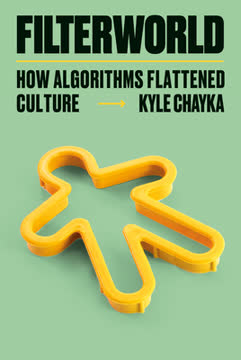
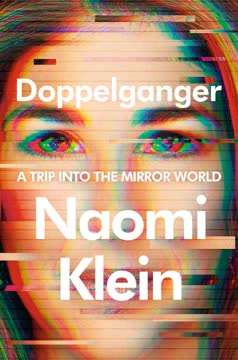
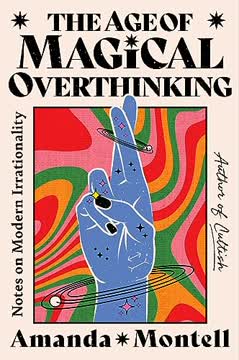
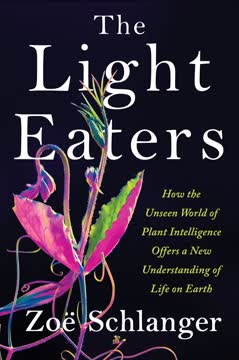

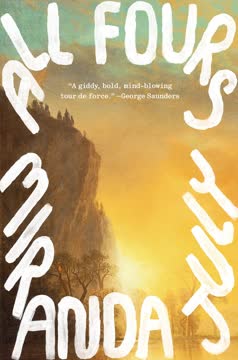
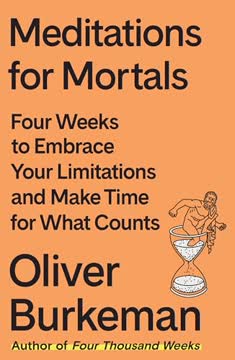
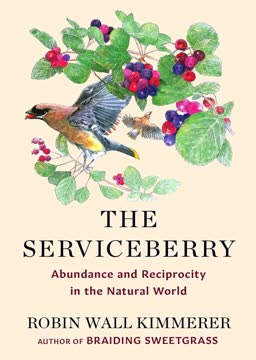
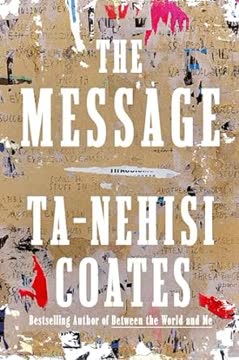
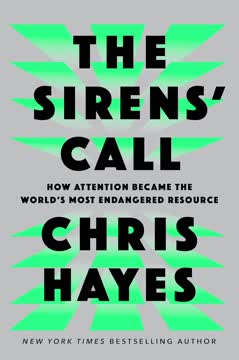
Download PDF
Download EPUB
.epub digital book format is ideal for reading ebooks on phones, tablets, and e-readers.
